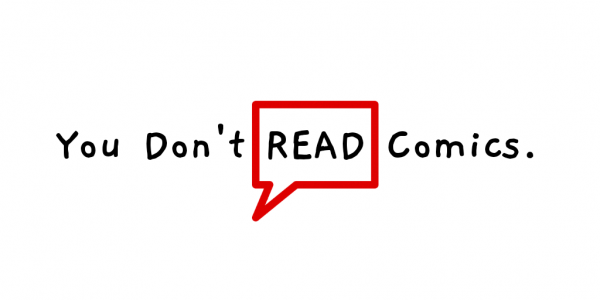Radiant Black #25 // Review
When the comic book industry started publishing comics with variant covers in the early 1990s, it always seemed like there was something more going on than a cheap grab for more money. Like maybe there was some subtle difference between the comics inside those covers. Nope. It was just a gimmick to sell more comics. With Radiant Black #25, writers Joe Clark and Kyle Higgins go forward with the artistic idea implied by the variant cover concept: two different comics with similar covers and similar stories on the inside...but with important and subtle variations brought to the page by artists Marcelo Costa and Eduardo Ferigato. Is it a gimmick, or...is it something with a little more artistic weight than Todd McFarlane’s Spider-Man #1?
Nathan Burnett unlocked the ethereal power to become Radiant. His friend Marshall Ward later took over for him with the same power as a similar figure known as Radiant Black. The two have wielded the power before. Only one can possess it, though. The two guys are just...hanging out in Waukesha, trying to figure out who’s going to have the power, when they are spurred on by the authority responsible for standing up to an impending war. Nathan and Marshall are given a test. In the end, though...it’s up to them. Buy the “A” version, and one of the two kids gets the power. Buy the “B” version, and the other one does.
Clark and Higgins’s script doesn’t really get particularly interesting until Nathan and Marshall sit down to make a decision at the end of the book. It’s kind of fun comparing the two conversations in the two different versions of the issue side-by-side. (The critic’s advance PDFs of the issue allow a really good opportunity for this on a wide-screen monitor.) Both Nathan and Marshall make interesting points in two different but distinctly similar conversations. Things could have gone in either direction...and thanks to the two different issues...they do. It’s kind of a fascinating way to tell a story.
Aside from the different dialogue and slightly different visuals of the conversation between Nathan and Marshall at the end of the book, there’s really no difference in the visuals of the comic book. Costa and Ferigato competently bring the cosmic-level action to the page. The drama feels equally strong, though the overall look and feel of the book feels a bit too soft on the Nathan and Marshall end of things. The action looks beautiful in places, but the animated conversation at issue’s end doesn’t quite have the kind of intensity it needs to really carry across what’s going on.
It’ll be interesting to see where the next issue takes the new Catalyst War story arc. It appears as though Clark and Higgins are working the whole...duplicate thing straight through the end of the arc. The next two issues have variant covers that are patterned the same way as issue #25. The parallel heroes concept looks like fun. Whether or not it turns out to be a cheap, insubstantial gimmick will be revealed in the course of the coming months.










